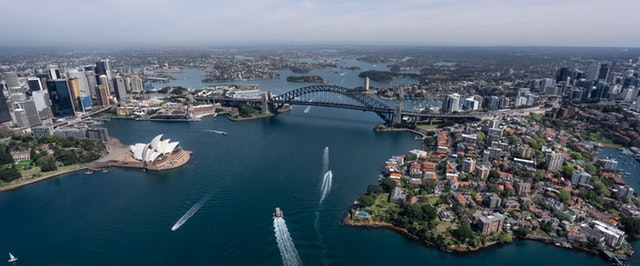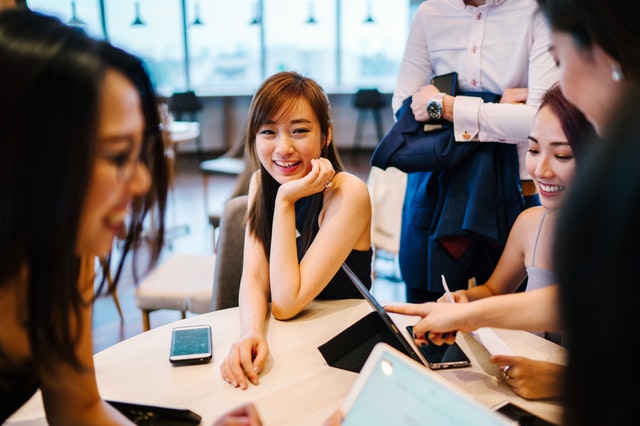Australia is a country full of natural wonders, great people and opportunities to have fun. In case you got lucky and were given a chance to be an exchange student in Australia, you have to make sure you don’t miss out on all the best stuff this country has to offer.
Check out 8 ways to truly experience Down Under while you’re there:
1. Try to find a job
As an exchange student, you will first have to obtain a student visa to be able to spend a few months or even a year in Australia. Be well-prepared for it, because acquiring this visa is pretty expensive. Furthermore, the standard of living in Australia is very high, as it’s one of the most expensive countries in the world. In other words, you will have to watch out for your budget – the food, the clubs, the museums, and the trips – everything will be more expensive than you’ll probably expect. So, you need a backup plan if you want to enjoy and see Australia as much as possible.
As a typical student visa allows you to work a certain number of hours every week, use it to your advantage. The minimum wage in Australia is pretty high, so you could earn enough to pay for the visa and to save some more for the trips you want to go on. Bonus: having a job will also give you the chance to meet a lot of interesting people.
2. Open a bank account
Another tip on how to save some money and make your time in Australia simpler is to open an Australian Bank account. In case you decide to draw out money with your home bank, you’ll have to pay incredibly high fees. An Australian account will save you money, especially with the fact that some Australian banks have a really decent interest rate. Bonus: an Australian account will be especially useful in case you find a job there.
3. Get a good command of Australian English
As Australia was a British colony until 1901, the commonly spoken language in the country is English. As Australian English evolved from British English, the spelling follows the rules of British English with a few exceptions.
If you’re a foreign student and you feel like you need to get a better command of English, the first thing you could do is to buy the Macquire Dictionary available in any book store in Australia. You’ll probably find it harder to understand Australians when they talk, as they talk more quickly than British or even American people. In case you need more practice with English or you want to improve your knowledge very fast, you can look up a homestay program in Sydney. A school like this provides you with additional English classes, as well as help with finding the right accommodation, which is incredibly useful at the very beginning of your stay in Australia.
4. Things to bring with you as an exchange student
Again, saving money wherever possible is necessary if you want to spend it on trips and exploration of all the fun activities in Australia. Many items in Australia are more expensive than in the rest of the world. So, you should bring that stuff with you rather than buying it in Australia. They include:
- cosmetics and toiletries – of course, you can’t bring all of your cosmetics and toiletries with you but a small supply of razor blades, toothbrush heads, perfume, and makeup will come in handy as they are very expensive in Australia.
- branded clothes and footwear – department-store branded stuff are not expensive in Australia but if you prefer branded items, then it’s better to buy them in your home country before you go.
- electronics – smartphones, digital cameras, and laptops are more expensive in Australia than in most of the other countries, so bring your own with you.
- books – books are also pricy in Australia, so if you are keen on reading books, get a Kindle or buy hard copies through Amazon.

5. Cities you shouldn’t miss
Whichever city or town you end up in, the following cities simply have to be on your bucket list:
- Sydney – the capital of Australia has a lot of iconic sites and cityscapes, including Harbour Bridge and the Sydney Opera House. Its coastline is amazing while the diversity of cultures in it is simply stunning. There are lots of activities to do, including crazy nights out, beautiful days on the Bondi beach or exploring the magical multicultural cuisine of the city.
- Melbourne – it’s been voted the most livable city a few years in a row, so no wonder why you simply have to visit it. It’s the coffee and cafe capital of Australia, where everything revolves around fun, food, art, and music. There are numerous music events for students, but there’s also St Kilda Beach where you can experience some of the best coffees in the world. In case you love football, there’s one more reason to visit Melbourne – it’s the home of Australian Rules Football. Furthermore, you can pay a visit to the largest stadium in the country, the Melbourne Cricket Ground.
- Perth – you may have heard of Perth as being one of the most isolated cities in the world but that doesn’t mean it’s boring. On the contrary, there are lots of things going on there, unique to that part of the world. You can go swimming with dolphins, exploring wild beaches, whale watching or partying on Rottnest Island with other exchange students. It’s also one of the sunniest cities in the world, so make sure you bring your sunscreen with you.
- Adelaide – there are many top universities in Adelaide, making it one of the best cities to be in as an exchange student. The University of Adelaide is located in the very heart of the city, just next to the State Library. As there is a high number of students, the city is crowded with bars and cafes, vibrant with life. There are numerous heritage buildings to admire, and the beach is never far away.
6. Means of transport
Inside the big cities, bikes are the most popular means of transport if your school or work is close by. Australian cities are very wide, so sometimes a bike won’t be a practical solution for you. In that case, you’ll probably travel to school or work by bus (or by train if you are situated in Sydney). In case you have a host family, maybe you’ll use their family car or be driven by them.
In case you want to see another part of the country, it’s best to travel by bus or car. In case the distance is greater than 300km, it’s smarter to get there by plane. When you want to take a local trip, just choose the cheapest option – the bike, or ask your host family to drive you there.
7. Safety in traffic
At some point, you will either borrow your host family’s car or you will rent one to go on a one-day trip somewhere. You need to pay special attention to the road, as Australians drive on the left side of the road. Traffic cameras are everywhere, so you really need to respect the traffic rules and speed limitations at all times. Lastly, don’t drive early in the morning, at dusk or at nighttime unless it’s really necessary. Kangaroos are hard to spot on time and they are simply everywhere. Not only could they seriously damage the car but you could also end up hurt (as well as the poor animal).
Final comment
Go to Australia well-prepared and ready to have an incredible time. Being an exchange student in Down Under is a once-in-a-lifetime experience.

